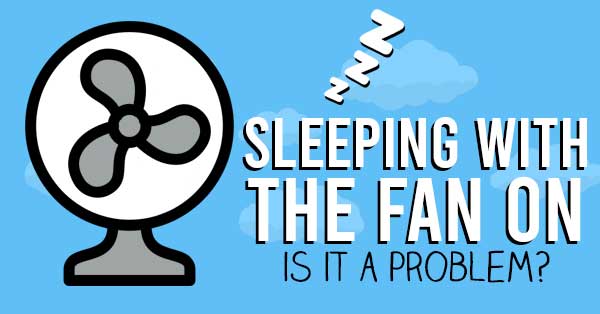During hot summer nights, you may choose to run a fan in your bedroom as a way to stay cool. A fan makes for a low-cost cooling solution compared to air conditioning and allows you to better direct the airflow.
Some people even run fans at night as a way to produce “white noise” to help them sleep.
However, for some individuals, the airflow of a fan during the night can be a cause for problems. If you do sleep with a fan and experience any of the issues mentioned below, consider trying to sleep without a fan and see if it makes a difference.
Allergies
Because fans circulate air around your room, you could spend all night in a direct line of dust and pollen being blown your way. Understandably this will surely trigger your allergies.
Also, watch for a build-up of dust on the fan blades. Dust will tend to stick to the edge and need to be dusted off to further minimize its circulation.
Dry Skin
Continuous blasts of cold air can cause irritation and dry out your skin. Keep the fans air from continually blowing on your skin to help reduce this. If you are sleeping with a fan on during the summer you may find yourself using as much moisturizer on your skin as you would normally use in the winter!
Muscle Cramping
A concentration of cool air can result in tense or cramped muscles. This is a great reason to avoid sleeping with the fan pointed at your face so you lessen this exposure.
Accounting for the fan’s breeze, you want to sleep with a temperature between 60 and 67 degrees.
How can you minimize these problems?
Having adequate air filters in your room can help reduce the circulation of dust and other allergens – not just from a fan, but overall. Simply rotating, or circulating, your fan can help even out your air distribution so to mitigate dust exposure. Additionally, using a fan that is equipped with a timer so that it can shut on and off on its own in the middle of the night can help reduce your risk.

